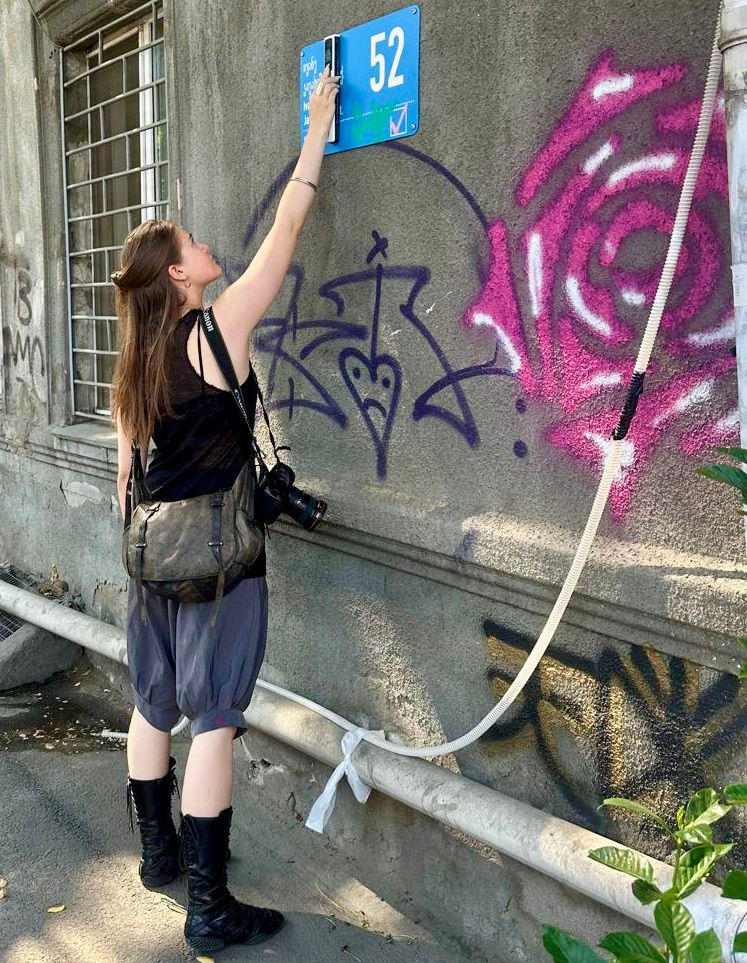Celeste Maawad, American University
- ivyoptionswebsite
- Apr 2, 2024
- 4 min read
Updated: Apr 3, 2024

For Celeste, graduate school had always seemed like the ultimate goal that she would ‘one day’ pursue. But after a life-altering London internship in the British Parliament, she's fast-tracking her way to a masters. The British-Lebanese senior, who grew up in Dubai, will get her undergraduate degree in May and has already been accepted to her top-choice universities.
IO: Hi Celeste. Thank you for taking time to talk with us. I know it’s a busy time for you with graduation in a couple months. What is your major?
Celeste: I am studying international relations at American University’s School of International Service with a thematic focus on foreign policy and national security and a regional focus on the Middle East.
IO: Was this your academic focus when you started your undergraduate studies?
Celeste: No, I originally attended Syracuse University planning to major in sports management my first year, but quickly realized that international relations was my passion. I transferred to AU and Washington, D.C., so that I was in an environment that aligned with both my career aspirations and academic interests.
IO: How have you evolved as a student?
Celeste: Throughout my undergraduate education, I have been challenged to conduct research within my field, and produce high-quality academic papers. Because of this, I have realized my capabilities and full potential to succeed in a postgraduate academic setting, which has pushed me to apply to graduate school.
IO: When did you decide to apply to graduate school? What sparked this decision?
Celeste: Graduate school has always seemed like the ultimate goal that I would ‘one day’ pursue. However, it wasn’t until my political internship in London during my junior year that I realized the resource benefits of a master’s degree. Advancing my studies not only offers me the ability to gain knowledge on global security issues, but will improve my critical thinking, research capabilities, and communication skills; all of these are invaluable assets in a wide range of career paths. I feel a master’s degree will prepare me for roles that require a nuanced understanding of international affairs, defense strategy, and conflict resolution.
IO: Tell us about your amazing internship with the UK government last year that changed your life.
Celeste: It was definitely one of the best memories of my undergraduate experience! I applied for a study abroad program, separate from my university, through the non-profit study provider, IES Abroad. As a half-British and half-Lebanese student who grew up in Dubai, I’d always wanted to work in the UK. Once in the program, I interviewed for an internship in MP Brenden Clarke-Smith’s office and was accepted. As a Parliamentary Assistant in the House of Commons in London, I worked alongside legislative staff to research and compile data regarding his constituency in Bassetlaw, managing inquiries and concerns, and organizing daily press releases.
IO: What do you hope to study in graduate school, and what is your goal?
Celeste: I know I want to study international relations in some form, and pursue a career involving government and policy-making, defense strategy, and conflict resolution.
IO: What graduate tests did you take and how did you prepare?
Celeste: My experience studying for the GRE is humorous now, but last fall was an extremely draining time for me as I did rigorous test prep and took the test in mid-November. After all that effort, I realized that the schools I was applying to were either test-blind or test-optional, so I decided not to include scores. If you are planning to take the GRE, my advice is to start preparing early, be realistic in your ability to balance academic coursework and test prep at the same time, and create a schedule to ensure a smooth process
IO: When in your graduate application journey did you start working with Ivy Options?
Celeste: Since I knew I wanted to apply to universities in both Washington, D.C., and London, I met with Ivy Options last fall to make a list of potential schools. Once I figured out where I was applying, I worked on my US-based applications first because the universities had a mid-January deadline. Ivy Options helped me with my UK applications in particular because applying to those institutions was out of my comfort zone.
IO: I know you’ve received some great acceptances. Tell us about your choices.
Celeste: I have been accepted to all of my D.C.-based universities: Georgetown’s School of Foreign Service, George Washington’s Elliott School, and AU’s SIS. I am still waiting to hear back from the UK programs.
IO: How is the graduate application process different from the one you went through when you applied for undergrad? What advice would you give to a student considering applying to graduate school?
Celeste: The main difference between the two applications is the statement of purpose. In the graduate application, essays tend to require more concise reasoning on why you want to pursue a degree in your chosen field of study. You must provide distinct career goals you wish to achieve, which in my case included working for the US Department of Defense (US applications) and UK Ministry of Defence (for UK applications). I would urge anyone considering applying to graduate school to begin those essays as early as possible. Acquiring recommendation letters from professors is also something I would make sure to do right away. The ideal time would be at the start of the first semester of senior year, as professors become busier as the year progresses.



Comments